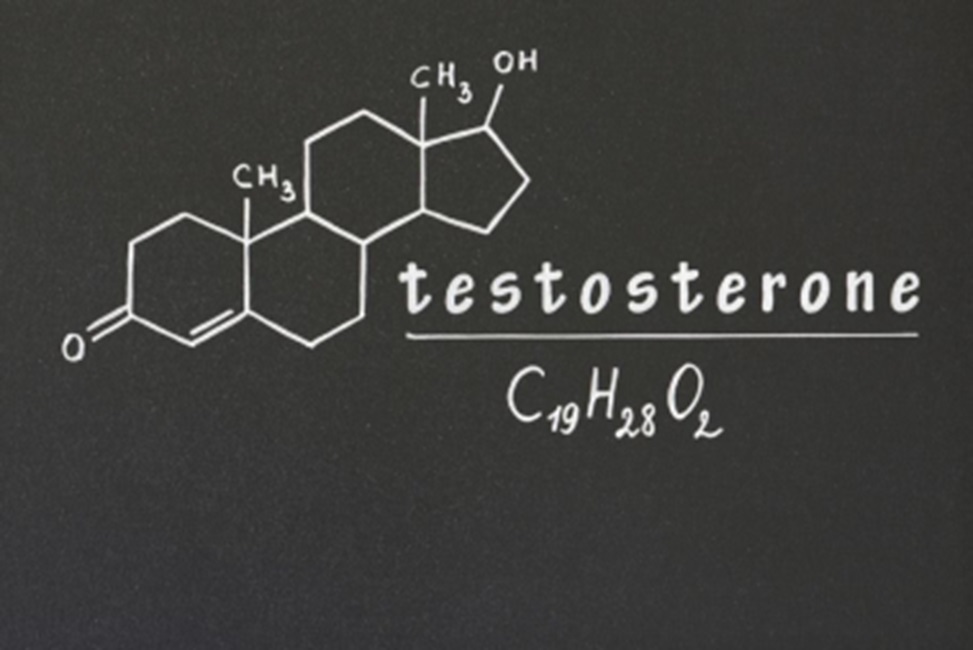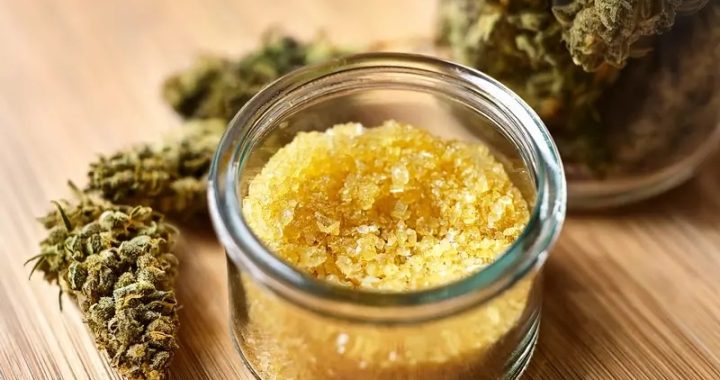
Kratom and Testosterone: Benefits and Effects of This Herbal Supplement
Kratom seems like just another herbal supplement to some people. Others find it both curious and concerning. Many individuals look for natural ways to deal with pain and stress. Kratom grabs the attention of users and researchers alike. This plant has unique effects. People in Southeast Asia have used it for a long time. It’s not surprising that more people try kratom for help. But they must learn how kratom works in our bodies first. Especially important is how it affects hormones. This article explains what kratom is. It looks at how it might change testosterone levels. These changes might really affect you. Let’s explore this fascinating herb together!
What is Kratom?
Kratom, also called Mitragyna speciosa, is a tropical tree. It grows in the rich lands of Southeast Asia. Countries like Thailand, Malaysia and Indonesia have many of these trees. People in these areas have used the leaves of this tree for hundreds of years. The plant is popular for its mind-altering effects. Traditionally, people chewed the leaves to feel happier or turned them into tea. They used kratom to help with problems like pain, tiredness and stress. It is an herbal supplement that found fame in Western societies for possibly lifting mood and boosting energy. The leaves hold over 40 active substances. Mitragynine and 7-hydroxymitragynine are the main ones. Let’s look at why they are important.
- Mitragynine: This compound acts as a partial agonist at mu-opioid receptors in the brain. It provides both stimulating effects at lower doses and sedative effects when taken in higher amounts.
- 7-Hydroxymitragynine: Although it constitutes only about 0.02% of kratom leaves, it’s notably potent—46 times stronger than mitragynine and approximately 13 times more powerful than morphine.
These compounds meet with opioid receptors in the brain. This is important because it allows kratom to change both pain and feelings. Users talk about different experiences based on how they take kratom, whether as teas, capsules or powder. Smaller amounts give energy and focus. Really low doses stimulate. Bigger amounts calm the body and lessen pain.
Learning about kratom’s details helps us understand its roles, but thinking about its larger effects is very important now. Especially for those who maybe use it instead of opioids or other medicines. Looking at these details about kratom, we should also study hormonal balance and its role in health. Hormonal balance matters for health.
The Role of Testosterone
Testosterone is more than just a hormone for men. It is crucial for health in both men and women. Many link it with being masculine, but it helps in many essential processes. It helps in reproduction; keeps energy levels balanced and even affects feelings. Testosterone supports growth in male reproductive parts. It encourages stronger muscles and bones. Knowing what testosterone does helps explain why having balanced levels is very important. Balanced testosterone levels really matter.
Functions of Testosterone
- Regulates libido: Adequate testosterone levels ensure a healthy sex drive, enhancing intimate relationships and personal satisfaction.
- Supports sperm production: In men, normal testosterone levels are crucial for producing healthy sperm, impacting fertility.
- Influences muscle strength and mass: Testosterone promotes protein synthesis, aiding muscle growth and recovery after workouts.
- Affects mood and energy levels: Balanced testosterone contributes to emotional well-being, with low levels often linked to fatigue and depressive symptoms.
Low testosterone links to health problems, like hypogonadism. Symptoms include low sex drive, tiredness and less muscle mass. Testosterone levels dropping below normal (300 to 1,000 ng/dL for men) may seriously affect everyday life. People might find it hard to stay motivated or see changes in their body. This fact raises questions. Important questions about kratom’s impact on hormones.
The relationship between kratom and testosterone needs attention. Looking closely at how this plant impacts hormones is crucial. This knowledge helps people make smart choices. Choices about their health options.
How Kratom Affects Hormones
The connection between kratom and the body’s hormones is complex and not completely known. Some people share personal stories that regular kratom use changes their testosterone levels. These users often experience tiredness, lower desire and mood changes, which are signs of low testosterone.
Kratom’s relationship with hormones is complex because of its different compounds. Mitragynine, a main compound, acts as a stimulant or a relaxant based on the dose. Another compound, 7-hydroxymitragynine, is stronger but less understood for its effects on hormones.
Why do some people feel no side effects, while others face hormonal problems? This question is important. Genetic traits, health problems or other substances might explain these differences. Studies under controlled conditions could offer more answers. These would help people take better care of their health.
At the same time, it is very essential to note research shows small to medium kratom doses might raise testosterone for some users. This means the amount taken really affects hormones. However, taking too much too often may lower testosterone, causing hormone problems. Physical symptoms can show these imbalances.
Summary of Effects
- Moderate Use: May increase testosterone by approximately 15-20%.
- High Doses: Associated with potential suppression of testosterone levels.
- User Variability: Individual responses can vary widely based on dosage and personal physiology.
It’s important for anyone considering kratom for its health benefits to understand these variables while also taking into account the potential risks related to hormonal disruption. Next, we will delve into the latest research findings that provide insight into these concerns.
Scientific Research Findings
We don’t know much about kratom and its effect on testosterone. Current studies help us a little. A pilot study with 263 people showed mixed results about sexual health and kratom use. Some users felt more energy during sex and had a higher sex drive. This suggests kratom might help with libido for some.
Research by Smith et al. in 2017 found more people using kratom over their lives, especially those in substance abuse treatment. About 21% said they tried kratom at some point. This shows that more people are using kratom in different social settings. We really need more research on how kratom affects things like hormones, especially testosterone.
The Need for More Research
The studies are small, so our knowledge about how kratom impacts testosterone over time is quite limited. The information we have is often not consistent or detailed. It mostly comes from personal stories rather than solid tests. This inconsistency creates confusion. It really confuses both users and healthcare providers. People should think about possible effects on hormones before using kratom.
As hormone balance becomes a more discussed topic, it’s crucial to understand how substances like kratom affect the body. Researchers need to examine factors such as dosage, frequency of use, and individual reactions to better understand its impact. Different people use different strains of kratom, and each strain affects the body in unique ways. These factors are essential to consider, as what benefits one person might not have the same effect on another due to the distinctiveness of each person’s body.
Implications for Users
People thinking about kratom or already using it need to know these details. Regular users watch their bodies carefully. They stay updated on new research. Talking to doctors knowledgeable about kratom and hormones supports safe use based on health goals.
Initial research gives hope about kratom’s possible benefits. Yet, understanding its effects is really crucial for wise decisions. Soon, we will look closer at its benefits and risks.
Benefits and Risks of Kratom Use
Potential Benefits
Many individuals explore Kratom for its reported benefits, particularly if they are struggling with chronic pain, anxiety, or depression. Users have found relief in several key areas:
- Pain Relief: A significant number of people turn to Kratom to alleviate discomfort from various conditions, including arthritis and fibromyalgia. Users often describe a calming sensation that helps to dull persistent pain.
- Improved Mood: Beyond just physical relief, Kratom may also elevate mood. Users frequently report feeling more upbeat and positive after a dose, which can be immensely helpful for those facing depressive episodes or anxiety.
- Increased Energy: Interestingly, while some users claim that higher doses have sedative effects, lower doses of Kratom can function as a stimulant, promoting alertness and energy. This duality makes it appealing for different needs.
Moreover, there’s growing anecdotal evidence suggesting that Kratom can assist those experiencing opioid withdrawal symptoms. As these individuals navigate their recovery journeys, the mild stimulating properties of Kratom may help ease cravings and discomfort.
Risks
It’s very important to think about Kratom’s good and bad sides. Long use might cause serious health problems. People might become dependent and feel cravings similar to those from opioid addiction.
Many people also talk about stomach problems like feeling sick and not being able to go to the bathroom. Constant stomach pain is really serious. Reports of initial relief might hide bigger issues.
Overdosing is a scary risk, especially with alcohol or medicines. In the U.S., there’s no control, so the product could be impure or mixed with bad things.
Anyone considering herbal supplements like kratom should have a clear understanding of the associated risks, benefits, and dosage guidelines. This knowledge is crucial for addressing potential issues and ensuring they take the correct steps.
Alternatives to Enhance Hormonal Balance
Exploring natural supplements might help support testosterone levels. Ashwagandha, Tongkat Ali and Zinc are very good choices.
Ashwagandha has been used in traditional medicine for a long time. It helps lower stress and might raise testosterone. A study shows testosterone levels could increase by 15-20% after eight weeks of steady use.
Tongkat Ali is also interesting. Research suggests it could really increase testosterone over time. It helps with hormone balance, mood improvement and more energy.
Lifestyle changes can impact testosterone and well-being greatly.
Regular exercise helps a lot. Strength training or high-intensity workouts really raise testosterone levels. Combining these with a diet rich in proteins, healthy fats like omega-3s and complex carbs creates a good nutrient mix for the body.
One person switched from Kratom to these supplements and lifestyle changes. They noticed big improvements in a few months – more energy and better hormone balance.
Kratom offers certain benefits, but these safer options might be better for keeping hormonal health and overall wellness intact.
Adding natural supplements and healthy lifestyle changes improves hormonal health. Exploring these might give options for better well-being without the risks of kratom.
























